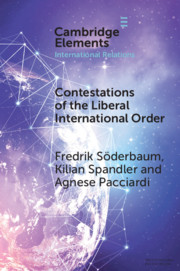Element contents
Contestations of the Liberal International Order
Published online by Cambridge University Press: 31 May 2021
Summary
- Type
- Element
- Information
- Online ISBN: 9781009030915Publisher: Cambridge University PressPrint publication: 23 September 2021

